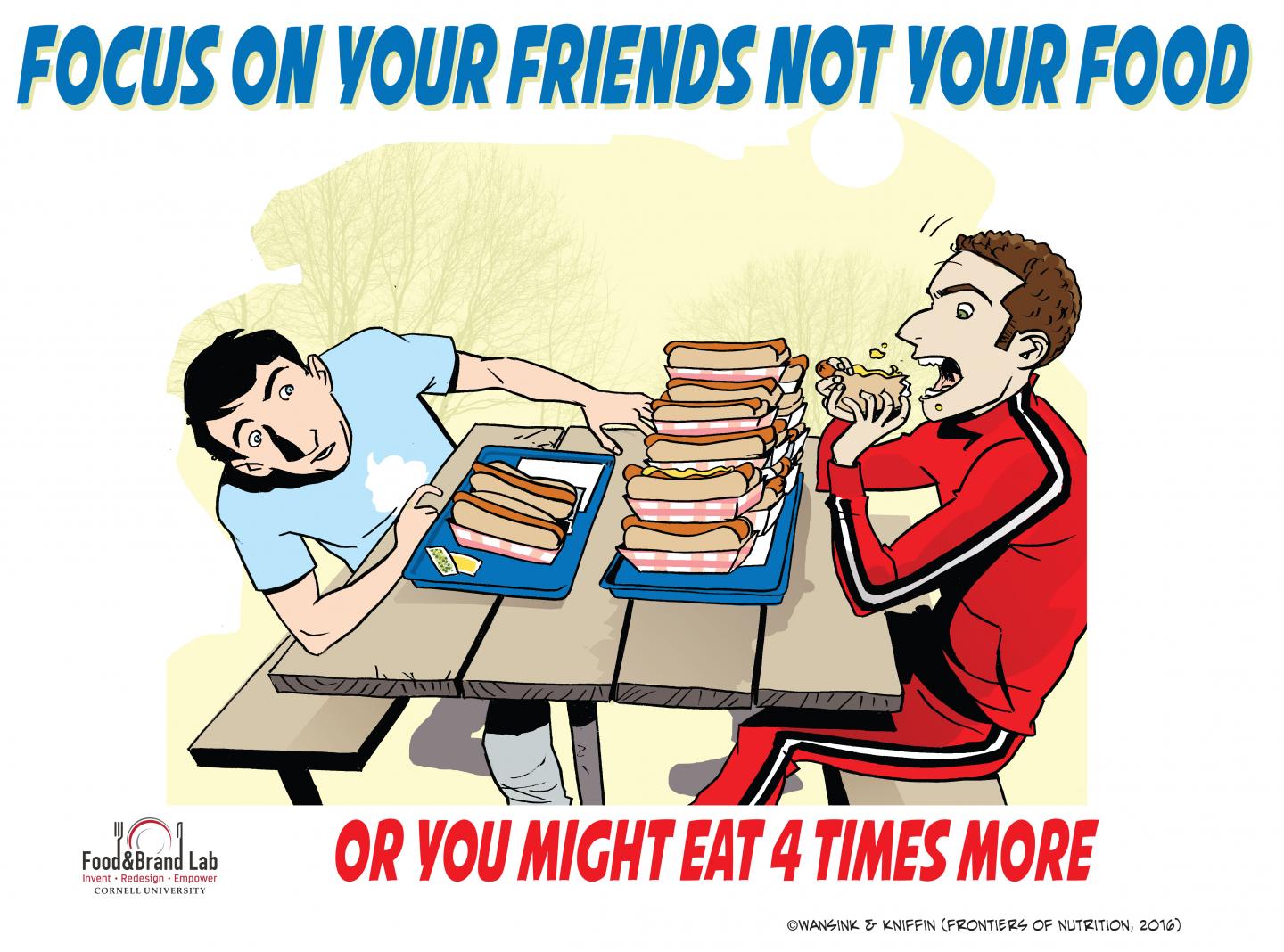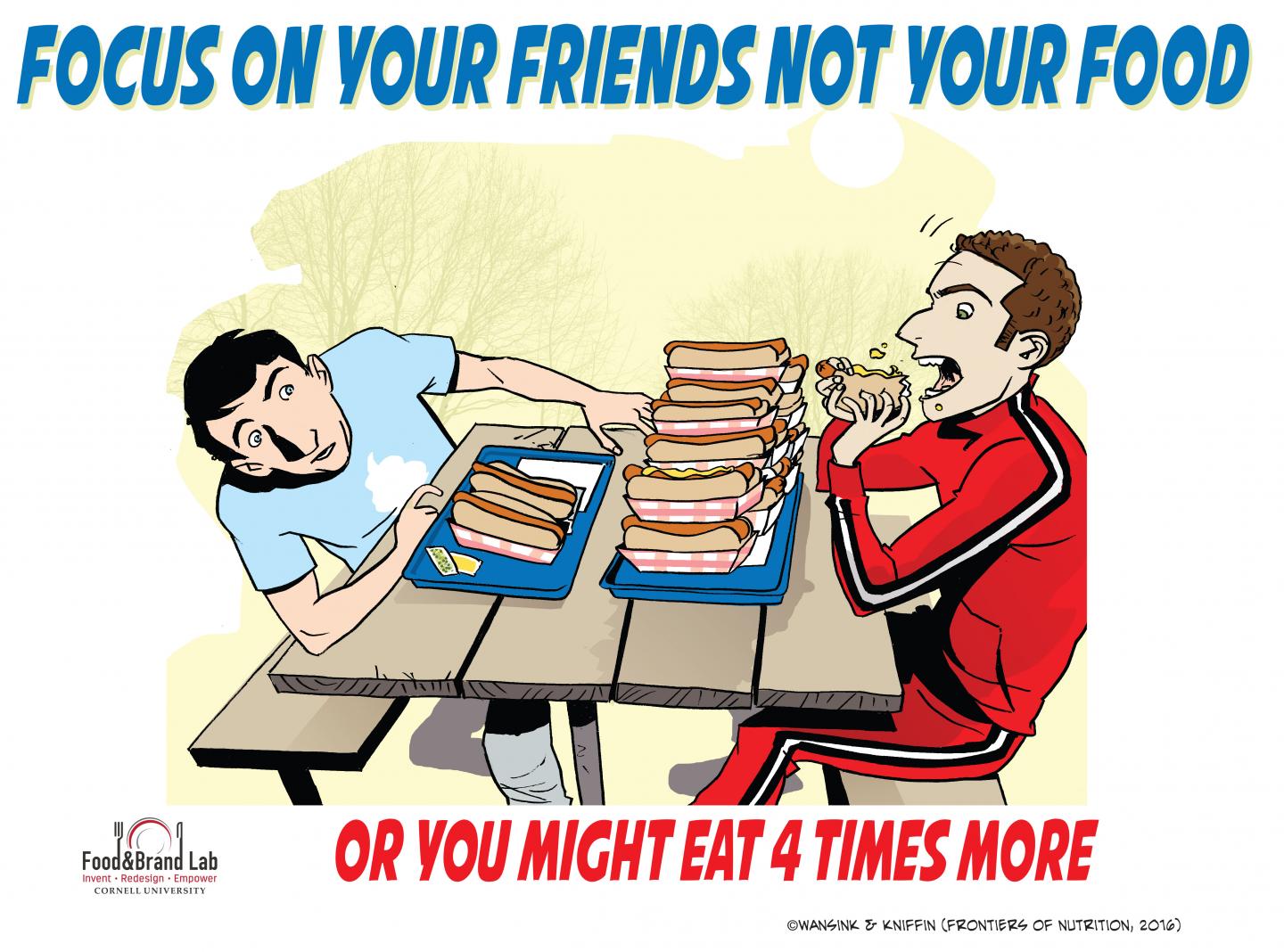
Credit: Daniel Miller
Gorging at a holiday meal or friend's BBQ might have more to do with your ego than the quality of the food — especially if you're a man.
A new Cornell Food and Brand Lab study finds that men are at particular risk of overeating in social situations even when there is no incentive to do so. "Even if men aren't thinking about it, eating more than a friend tends to be understood as a demonstration of virility and strength," explains co-author Kevin Kniffin, PhD.
For the study published in Frontiers in Nutrition, researchers recruited college aged students of similar weight to participate in either a competitive chicken wing eating challenge with cheering spectators, or a competitive chicken wing eating challenge with no spectators. The prize for eating the most wings was a worthless plastic medal, but competitors still ate about 4 times more food than normal. Men who ate in front of spectators ate 30% more than those without spectators and described the experience as challenging, cool and exhilarating. Women, on the other hand, ate less with spectators than without them and described the experience as slightly embarrassing.
"Focus on your friends and not the food," suggests lead author, Brian Wansink, PhD, Director of the Cornell Food and Brand Lab and author of Slim by Design. He notes that these findings have obvious implications– from tailgates, to holidays, to all-you-can-eat night– and concludes, "If you want to prove how macho you are, challenge your friend to a healthy arm wrestle instead of trying to out-eat him."
###
Media Contact
Katie Baildon
[email protected]
607-255-6090
@CUFood_BrandLab
http://foodpsychology.cornell.edu/
############
Story Source: Materials provided by Scienmag





